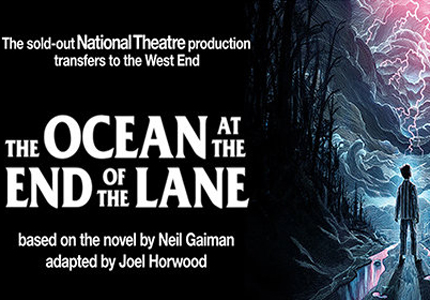
And yet it’s affecting me in ways that are primal, and deep, and emotional.” The last time I saw at the Duke of York’s Theatre I was finding different places that I was crying, going, “This is so weird. And I thought, okay, whatever it did to me, it’s doing to him, and he’s sat there with the same experience going on. Since then, I’ve sat there next to a reporter on the first night in the National Theatre and watched this guy’s notebook getting splashed by tears. I was in a well-lit rehearsal room with all of the actors checking me out all the time, going, “What’s he going to think? Is he going to like this?” And I’m trying to discreetly flick away the tears. I was astonished and embarrassed, because I wasn’t sitting there in the dark quietly on my own. I was astonished the first time I saw a complete run-through and realised I had tears running down my face. There’s a very weird way in which Ocean, because it taps into memories that are so primal, I think also manages somehow to tap into emotions that are primal. I know these are actors, I know I’m in a theatre, yet somehow I’m allowed to access that part of my brain that says this is also real. And you sort of go, okay, I know that these are not real people. They’re experiencing something huge and magical all at the same time. For me, a novel is a way to do something inside somebody’s head, but a play is a way to make them part of an audience. It’s actually doing stuff that occurs inside people’s heads. It’s a lot of heavy lifting from a staging point of view. He’s there and the world forms, and shapes, and moves around him. That’s not something that I would’ve thought would make it easy to stage. The entire book is from one person’s point of view.

So, whether they’re accurate in one way or whether they’re accurate in another, you don’t know.īut there’s a sort of a wonderful way that instead of feeling like you’re moving from scene to scene, or set to set, you’re flowing with memory and everything is changing around you. They may be, but you also know that things have been playing around with these memories.

You know that they’re not necessarily accurate. You are moving through somebody’s memories. And I think that one of the things that Joel, in his script, and Katy, in her staging, gave us is a way of looking at memory. It’s interesting because the book is about a number of things, but one of them is memory. Obviously you’ve changed your mind since then, so what is it about the book that you think suits the stage in particular? You have said when the play was first suggested to you, you thought the book would be impossible to stage. We talked with Neil Gaiman about seeing his work translated to the stage, and the magic of theatre. Translating a story like that to the stage is a daunting challenge, but it is one that the National Theatre, London has pulled off admirably.


 0 kommentar(er)
0 kommentar(er)
